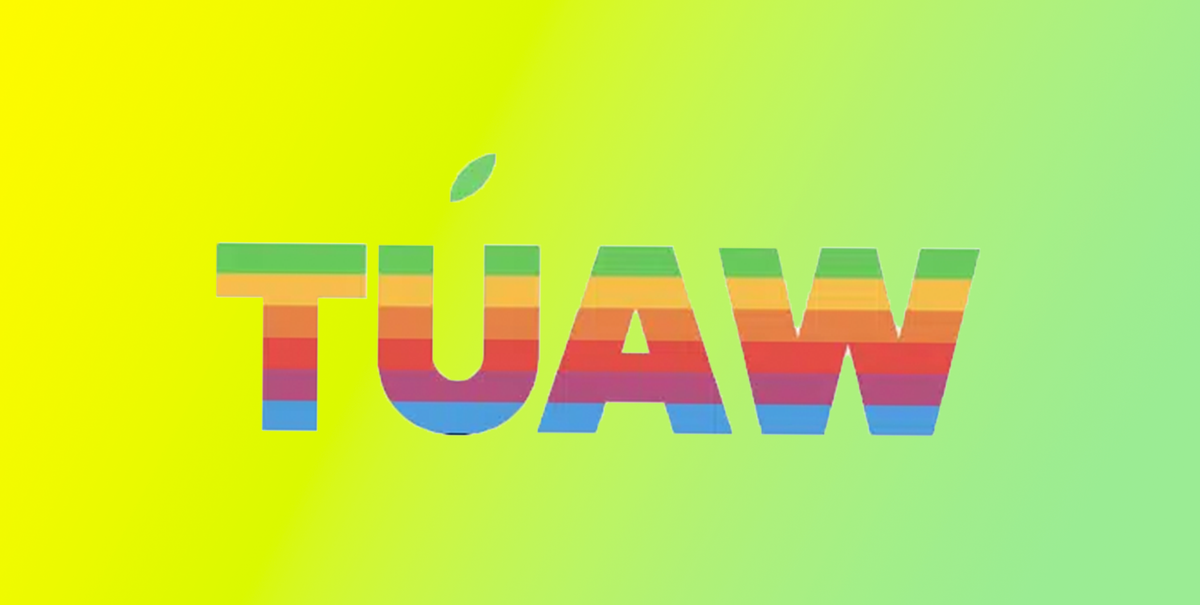Hocked TUAW
TUAW, a site that was shut down 10 years ago, was sold to a private equity firm, then to a company in Hong Kong, and has now stolen its old workers' identities and is running their old work through AI summarizers.

This month, “Christina Warren” started blogging again for The Unofficial Apple Weblog (TUAW), a legendary and long-dead Apple-centric tech news blog that she worked at more than a decade ago. Warren was for years a well-known and very good tech journalist, before she went on to work for Microsoft and GitHub. The real Christina Warren hasn’t been writing these new posts on the zombie TUAW, however. The site’s new owners have
stolen her identity, replaced her photo with an AI-generated one, and have been publishing what appear to be AI-generated articles under her byline.
Worse, the new version of TUAW has “recreated” the archives of the site by running old, real articles through a summarization tool and then republishing new, “bastardized versions” of the old articles under the bylines of real writers who didn’t actually write them, Warren said. The names and bios of dozens of real journalists who actually worked for TUAW a decade ago
are listed on the website, and all of them have had their real images replaced with AI-generated ones, and their old work misattributed to other people and turned into AI slop by a summarization tool that has destroyed their original work.

The real TUAW archives have been backed up and republished on Engadget, and so it is possible to compare the “new” version of many articles with the originals. For example, a lighthearted “
Caturday” post by former TUAW writer and Engadget editor Steve Sande was summarized and reposted on the new TUAW,
with a different headline and different words under Warren’s byline.
“What’s worse than not having a good archive of my work is having one that is bastardized with my name but not my face and not my words on it,” Warren told 404 Media. “If they wanted to try to revive an old brand, fine, but leave the original writers out of it, and leave the old content out of it too because a lot of that old stuff has been rewritten and regurgitated and I don’t have any idea what it is, and it’s not what I actually wrote.”
Warren said she learned about the zombie version of TUAW from Apple blogger John Gruber,
who runs Daring Fireball, and she began to tweet about it.
“Someone bought the TUAW domain, populated it with AI-generated slop, and then reused my name from a job I had when I was 21 years old to try to pull some SEO scam that won’t even work in 2024 because Googled changed its algo. Assholes!,”
Warren tweeted Tuesday.
Brett Terpstra, a former TUAW writer, told 404 Media “I think it’s terrible. We (the TUAW authors) are trying to figure out what can be done.”

Since it “relaunched” last week, TUAW has published eight different “new” articles under Warren’s name in addition to the thousands of backdated articles they have published. They have also published “new” articles under the bylines of Mike Schramm and John Davis, who also wrote for TUAW when it was alive.
“I have definitely not written those articles, and that is definitely not my picture,” Schramm told 404 Media in an email. “I am not sure what I can do about this, but thanks for bringing it to my attention. I believe that I actually own the original posts I wrote for TUAW—they belonged to AOL for a short publication period, and then according to the contract I signed way back when, I think they are technically owned by me.”
What has happened to TUAW and its writers is something of a nightmare scenario for journalists who work in an extremely precarious industry that has been marked with private equity takeovers, unceremonious layoffs, and the sale of once-proud brands to
gambling moguls, AI-content farms, and SEO schemers. TUAW was originally a part of a company called Weblogs, Inc., which was later sold to AOL and was shut down by the company in February, 2015. It ended up in the hands of Yahoo, which was bought by Verizon,
then sold to Apollo Global Management, a private equity firm.
TUAW’s new website states that it “has been a cornerstone of Apple-related journalism since its establishment on December 5, 2004,” and states that a company called Web Orange Limited acquired it from Yahoo IP Holdings LLC in 2024 “without its original content.”
“Genuinely, fuck AOL/Yahoo/Apollo Global or whoever for doing this,” Warren tweeted.
Web Orange Limited, Yahoo, and Apollo Global Management did not respond to requests for comment. Immediately before we published this article, TUAW changed the author “Christina Warren” on its website to just “Christina.”
“Under the new ownership, TUAW’s team of writers and editors—trusted worldwide for their fair and thorough reviews—continues to uphold the highest standards of journalistic integrity,” TUAW’s
new “Editorial Integrity” statement reads. That description then links to a staff page full of real people who once worked for TUAW but do not anymore, and who have had their bio images replaced with AI generated ones.
Web Orange Limited says on its website that it is “a Hong Kong-based company that provides online advertising services,” and which claims to own a host of other websites, including one called The Hack Post. The most recent
articles written on The Hack Post are credited to “Sofia Peterson,” whose bio image is a stock photo. Another site that Web Orange Limited claims to own is
Meta Press. A byline on that site is “Lakisha Davis,” whose image is a stock photo and who publishes dozens of articles a day on such topics as “How to Measure for a New Garage Door in Queens: A Garage Door Installation Guide” and “What Are the Types of Software Development?”
404 Media has written endlessly about AI content farms and spam sites and even showed how
many different popular services on the internet allow for the easy creation of these types of spam farms. Formerly beloved sites like
The Hairpin have been turned in AI content farms, as
have the websites of shuttered local newspapers. But in the case of TUAW, the actual identities of real journalists are being stolen and are being tied to articles that they had nothing to do with. This not only serves to devalue the work that they once did on TUAW, but also pollutes web searches for their work and puts their name on work that is AI generated and of extremely low quality.
“I don’t want people to come across the contents coming out of that site and think that I actually wrote like that [very poorly],” Warren said. “We’ve seen people buy zombie sites before, but it didn’t occur to me people would republish wrong content using the names of the original people who worked on the site a million years ago.”
“I genuinely credit the whole trajectory of my career with those old blogging days. I have nothing but fond memories of that place,” she added.
The shuttering of many legendary websites, blogs, and news sites and their constant changing of hands from company to company to private equity firm to random content entities is now an unfortunate and all too common trajectory, and what happened to TUAW could easily eventually happen to other formerly beloved sites.
“It’s gross. We have decades of this stuff built up and it keeps changing hands and changing hands. And what recourse do we have as the writers?,” Warren said. “We also do such a bad job of web preservation, of preserving the history of the web as it was. So it’s kind of fucked to me that these approximations of the past are being recreated in these really blasphemous ways.”
Update 7/10/24: Several hours after the publication of this piece, TUAW changed the names of most of its "authors." Some of the bylines still use the same last name of the real person. "Christina Warren" is now "Mary Brown."








